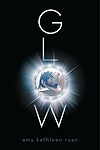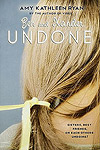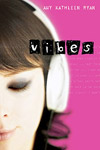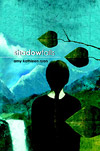Today I present my friend and acclaimed author Todd Mitchell! Todd is the author of The Traitor King, which School Library Journal called "a must for fantasy readers," and The Secret to Lying, which won the coveted Colorado Book Award! He's also a contributor to a very cutting edge graphic novel anthology called Flight of Angels, along with an illustrious mix of other writers. We're all looking forward to his upcoming novel Backwards, which he'll tell us about in a minute, right after our conversation about rejection and how a writer can use it.
A: When I first started off as a writer
in my twenties, and I would tell people that's what I wanted to do for a
living, I almost always got some warning like, "Being a writer involves
lots of rejection..." Few people were particularly encouraging of my
dream. Now that I think about it, this might have been my first taste of what
was to come. I didn't sell anything at all in my twenties. I wrote short
stories and poems and sent them off to very unrealistic places like The New
Yorker, or The Paris Review. I don't think I was so naive as to think I'd be
accepted. I always received those rejection letters with a grim kind of
complacence. Probably deep down I knew that what I was sending off wasn't
actually good enough, and so the rejection came as no surprise. It's when I
started really getting serious, and trying my hardest, that the rejection
started to hurt.
T: The New Yorker? Wow, you're bold. But
I definitely sent out some similar, unrealistic submissions in my time, too.
And writing, I think, is all about rejection. Not just the big manuscript
rejections, but the countless little ones that happen when an idea, or
character, or even a line gets "rejected" (yeah, I know, most people
refer to that as criticism, but essentially it's the same as rejection. Or at
least it feels the same, because for whatever reason, a reader isn't accepting
a part of the story).
 The thing I've come to understand is
that there are different types of rejection/criticism. There's the "yeah,
that probably wasn't ready to be published" (or "that line wasn't
right") rejection that you mentioned. And ultimately that's a helpful
rejection, because it's the world's way to push you to do better. When I think
about what we do as writers, part of it depends upon believing in a fantasy
(even if you're writing realistic fiction). After all, when you start writing a
story, you start with a blank screen. With nothing. So you have to delude
yourself into thinking that you can create something out of nothing. You have
to believe the story, and characters, and all of it can exist. So much of the
writing process at first is building on that belief, until writing the story
isn't so much creating something, but discovering something, as if the book has
always been there just waiting to be unearthed. I mean, aren't those the best
books? The ones that you can't even imagine anyone writing, because they seem
to exist so completely.
The thing I've come to understand is
that there are different types of rejection/criticism. There's the "yeah,
that probably wasn't ready to be published" (or "that line wasn't
right") rejection that you mentioned. And ultimately that's a helpful
rejection, because it's the world's way to push you to do better. When I think
about what we do as writers, part of it depends upon believing in a fantasy
(even if you're writing realistic fiction). After all, when you start writing a
story, you start with a blank screen. With nothing. So you have to delude
yourself into thinking that you can create something out of nothing. You have
to believe the story, and characters, and all of it can exist. So much of the
writing process at first is building on that belief, until writing the story
isn't so much creating something, but discovering something, as if the book has
always been there just waiting to be unearthed. I mean, aren't those the best
books? The ones that you can't even imagine anyone writing, because they seem
to exist so completely.
But... in order to revise a book, I
think that belief in what you're creating (the writing delusion), needs to be
shaken a bit. And that's where rejection comes in. It's like that old Zen
saying (cliche as it is, it's a good one): First you see the mountain. Then
you see no mountain. Then you see the mountain as truly a mountain. With
writing, though, it's like first you believe in the story. Then you think the
story is all crap. And then, if you're able to get past that point of doubt,
you might discover the true story.
When I've sent manuscripts out during
that first stage of delusional story love, and they've gotten rejected, it's
ultimately been good. What's harder, though, is when I've thought I've
discovered the true story, and the manuscript (or idea, or character, or line)
has still gotten rejected. Like you, I think that's a different sort of
rejection. Because maybe the problem isn't with the story. Maybe the story got
rejected because it's so different, or unique, or brilliant, that people aren't
getting it. Or maybe I'm just deluding myself again. And there's the rub —how
do you tell the difference between the rejection/criticism you should listen
to, and the rejection/criticism you should ignore?
So what do you do, Amy? When do you listen to the voices
of doubt, and when do you ignore them?
A: I like that idea of the helpful
rejection. Hadn't thought of it that way before, but for the serious artist,
rejection really is helpful as a way of pushing us to do better. I also love
that Zen analogy. Writing a book sometimes feels a lot like climbing a
mountain!
As far as knowing the difference between
the rejection that helps and the rejection that means the reader "doesn't
get it," I honestly think, for me, the only way to tell is to give it
time. Most rejection stings quite a bit, and can feel frustrating. I've found,
though, that the criticisms that really stay with me, that hurt beyond the
initial barb, are the ones that are true. They're the ones I should be paying
attention to. But truthfully, the ones that hurt are often the ones I want to
deny completely so that I don't have to deal with the emotions of feeling that
I've failed in my project. It has sometimes taken me months to accept a truth
about a piece I was working on, to recognize that I needed to let it go. That
adds up to a lot of wasted time, all in the name of protecting my ego.
Kind of brings us back to Buddhism, in a way. I'm no
expert, but don't Buddhists try to clear ego and its wants out of the way so
that they can reach a state of blissful acceptance? Do you see a parallel here
with the writing process?
 T: I definitely see a parallel. In fact, I often think
of writing as a form of meditation, since it helps reveal to us truths about
ourselves and the world. And often that path of revelation (or realization) is
a difficult one. (Okay, now I'm sounding lofty, but while we're on the subject
of Buddhism, I don't exactly see Buddhism as being about acceptance. Instead,
the Buddhism I've practiced has been more about awareness, and relieving
suffering in one's self and others. It's a subtle difference, but I think an
important one).
T: I definitely see a parallel. In fact, I often think
of writing as a form of meditation, since it helps reveal to us truths about
ourselves and the world. And often that path of revelation (or realization) is
a difficult one. (Okay, now I'm sounding lofty, but while we're on the subject
of Buddhism, I don't exactly see Buddhism as being about acceptance. Instead,
the Buddhism I've practiced has been more about awareness, and relieving
suffering in one's self and others. It's a subtle difference, but I think an
important one).
Anyhow, back to writing — I really
like what you said about how the criticisms that hurt the most are often the
ones that on some level, are true. But it's a truth that we're often afraid to
accept, or unable to accept. This is where the difference between acceptance
and awareness comes in. Because I don't think it's necessarily good to accept
the criticism. Instead, I find it's more helpful to try to become aware of the
truth behind the criticism. Afterall, the criticism itself might not be
helpful. It might be given by someone who doesn't get the vision of a piece, or
is speaking more out of malice and insecurity rather than genuine insight. But
if it sticks with is, it's a sign that there's probably some truth there to be
discovered. To accept the criticism is in essence to accept some failure. To
use the criticism to develop a deeper awareness of one's self or one's writing,
though, is to turn something negative into a positive.
Admittedly, this is a challenge. And
I agree, taking time to let the muddy waters settle is helpful. Here's another
trick I sometimes use. Since I don't want to accept that a painful criticism is
right (lest it cause me to give up on a story, or at least the way I've
conceived of a story), I'll tell myself "Okay, let's pretend something
about this is right. If so, what alternatives could I think of that will fix
the problem?" Often, by asking myself that question, I'll come up with a
different turn or layer to a story, that I might have missed before. And always
this results in a better draft. It might not mean, though, that I've directly
addressed the thing someone criticized. Because that's the thing I've learned
about criticism and feedback — readers are pretty good at sensing
problems. But they're not so good at sensing solutions. So a reader (or in some
cases, even my editor) might comment that a certain line or action doesn't
"ring true." But the solution might not be to change that line or
action. Instead, it might be to change something that happens 20 pages before,
or 20 pages after. And then, suddenly, the thing that stuck out like a sore
thumb works great.
I completely agree with your thoughts
on how it's ego that often gets in the way of making these realizations (or
making them quickly). With revision, I've always found that the sooner I can
let go of things and address the big issues, the sooner I can discover a better
draft. But it's very hard to do that. Ego is tricky. It tries to talk me into
keeping things the way that they are (so instead of restructuring the whole
plot of a story, I might spend months trying to "justify" the
structure I've written, until I get so frustrated, I give up and start over,
and discover what I should have months ago). I've tried to make peace with that
process, and enjoy the constant realizations and twists and turns that happen
when I write. But I would like to become more efficient, and find the
"right" story/character/voice sooner. Because right now, it takes me
around twelve drafts to get things right.
So what say you, Amy? Any tips on how to get beyond ego,
and let go of things, and unearth the "true" story quicker? Please —
I need them!
A: The only short cut I can think of is
to have a fellow writer read your work, someone you trust, who is smart and
perceptive, and has a writer's sensibilities. I don't see this as criticism so
much as plain old help. I've always thought that the central problem with
written language is that it doesn't have all the "fail safes" that a
face to face conversation can have. When you're talking to a person, you've got
body language, expression, and tone of voice to convey meaning. If you're still
unclear, your listener can ask questions to clarify meaning. But in writing, it
ALL has to be on the page. I see a critique partner's role as similar to the
fellow conversationalist --one who asks the questions that clarify to help
uncover meaning. Sometimes those questions might hurt, but if you've got a good
critique partner, those questions are meant to help, not wound.
To wrap things up, what are you working on now?
T: I completely agree about the importance of working
with a good critique partner (or two). Makes me think I should get together
with my group again sometime soon (hint hint).
 Right now, I've just finished the third (and final)
round of editor requested revisions for my new book, BACKWARDS, which will be
coming out with Candlewick Press in Fall 2013. I think of it as my happy
suicide book, because I wanted to tackle some tough issues like suicide and
bullying, but I didn't want it to be depressing. The only way I could think of
to make the story uplifting, though, was to have it be narrated by a
consciousness who's traveling backwards through time. It's a very odd book, and
I'm eager to release it into the wild to see what people think.
Right now, I've just finished the third (and final)
round of editor requested revisions for my new book, BACKWARDS, which will be
coming out with Candlewick Press in Fall 2013. I think of it as my happy
suicide book, because I wanted to tackle some tough issues like suicide and
bullying, but I didn't want it to be depressing. The only way I could think of
to make the story uplifting, though, was to have it be narrated by a
consciousness who's traveling backwards through time. It's a very odd book, and
I'm eager to release it into the wild to see what people think.
And now that I'm pretty much done with that
project, I'm diving back into a paranormal romance hybrid-text project that
I've been working on for five years, called THE HIDDEN. I'm literally rewriting
this book for the tenth time, but I think I've finally figured out the right
story, because all the elements are falling into place, and I can't stop
writing it. Sometimes it goes that way, I suppose. I stumble about in the dark
for awhile, but when I find the right story, it seems so obvious, I wonder how
I didn't see it before. That's the joy of writing for ya.
Thanks for talking with me, Amy. You rock.
A: Thanks Todd. I can hardly wait to read Backwards! Rocketh on, my man.
Todd's Website:
http://www.toddmitchellbooks.com/
Where to find his books:
http://www.indiebound.org/book/9780763656201
http://www.indiebound.org/book/9781935689508
http://www.amazon.com/Todd-Mitchell/e/B001IR1N5K/ref=sr_ntt_srch_lnk_1?qid=1348677025&sr=8-1
http://www.barnesandnoble.com/c/todd-mitchell
























